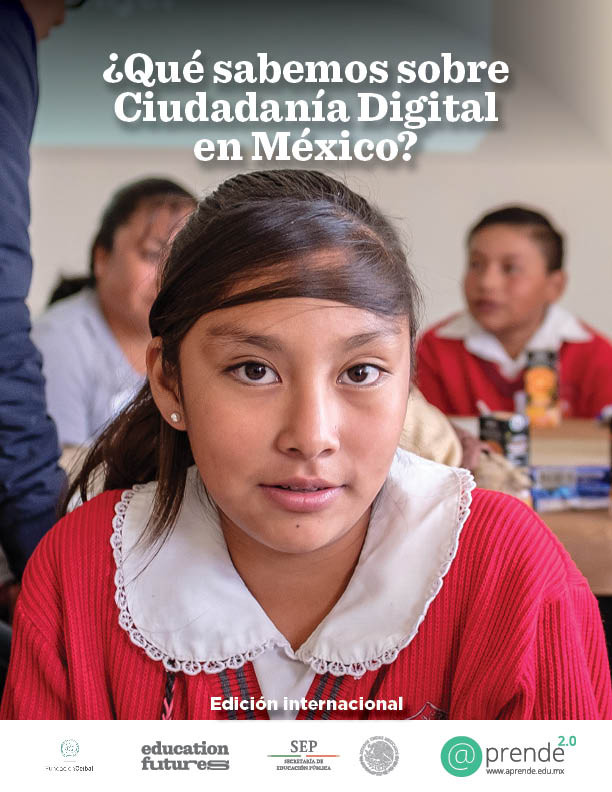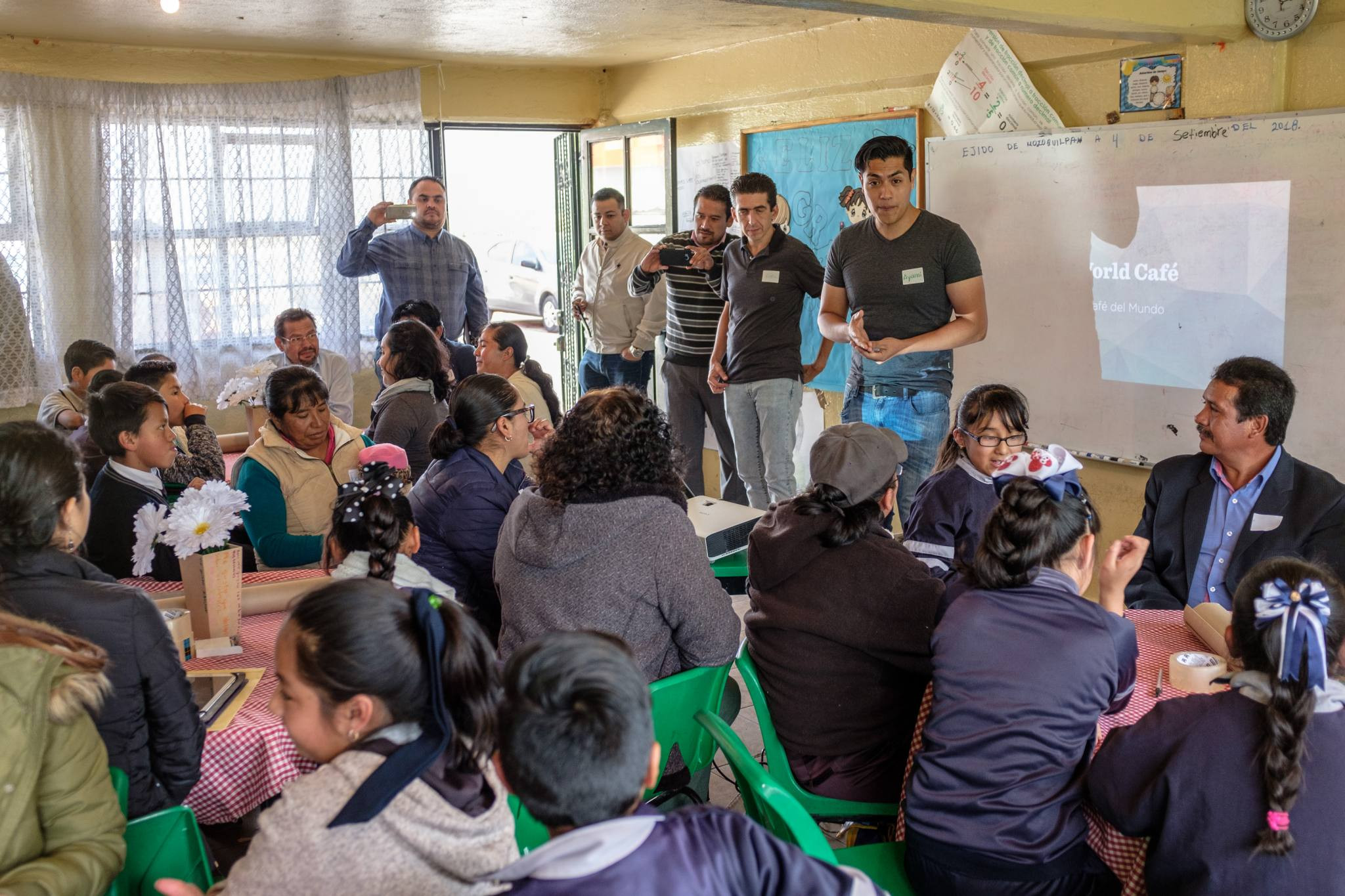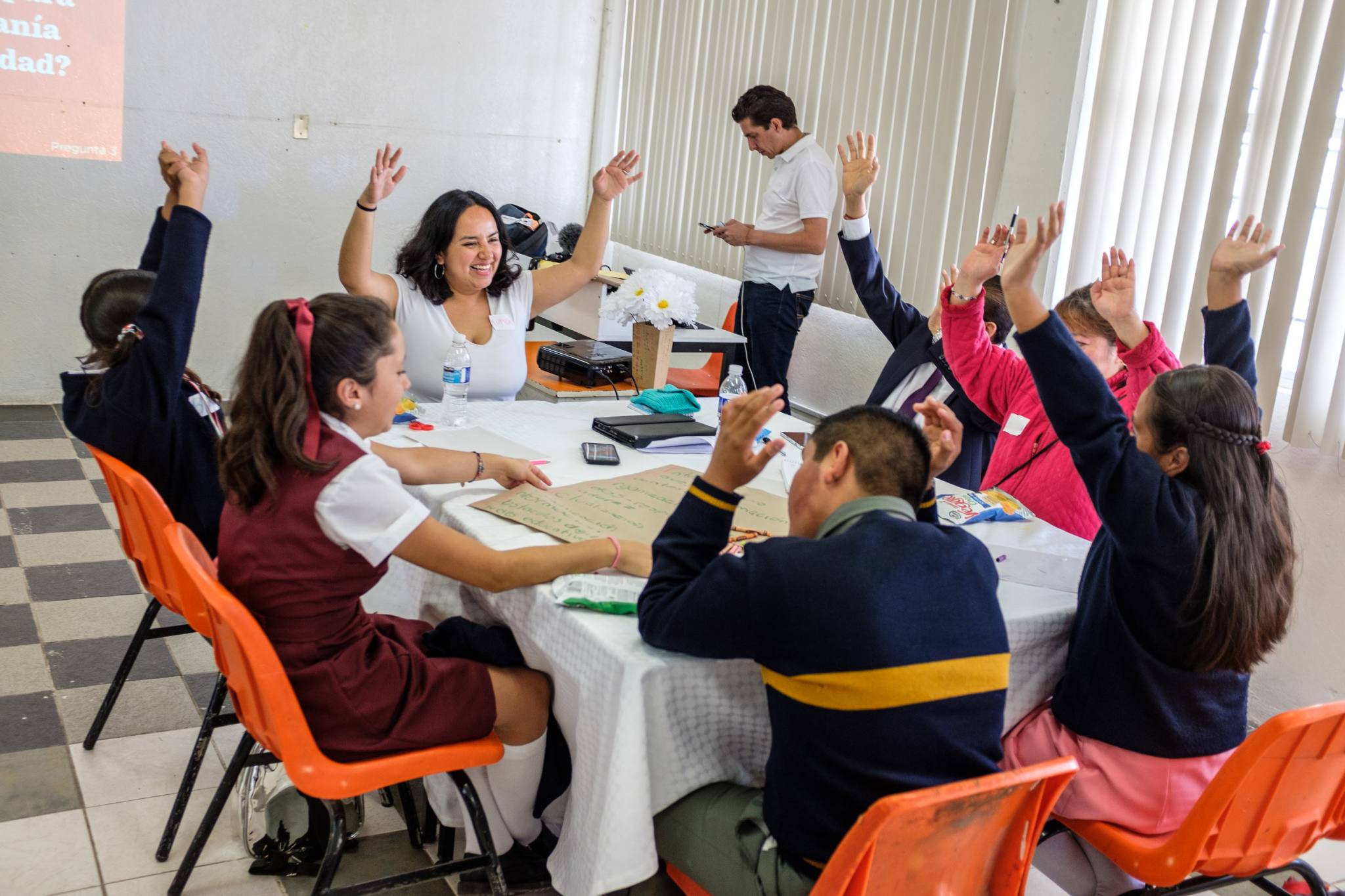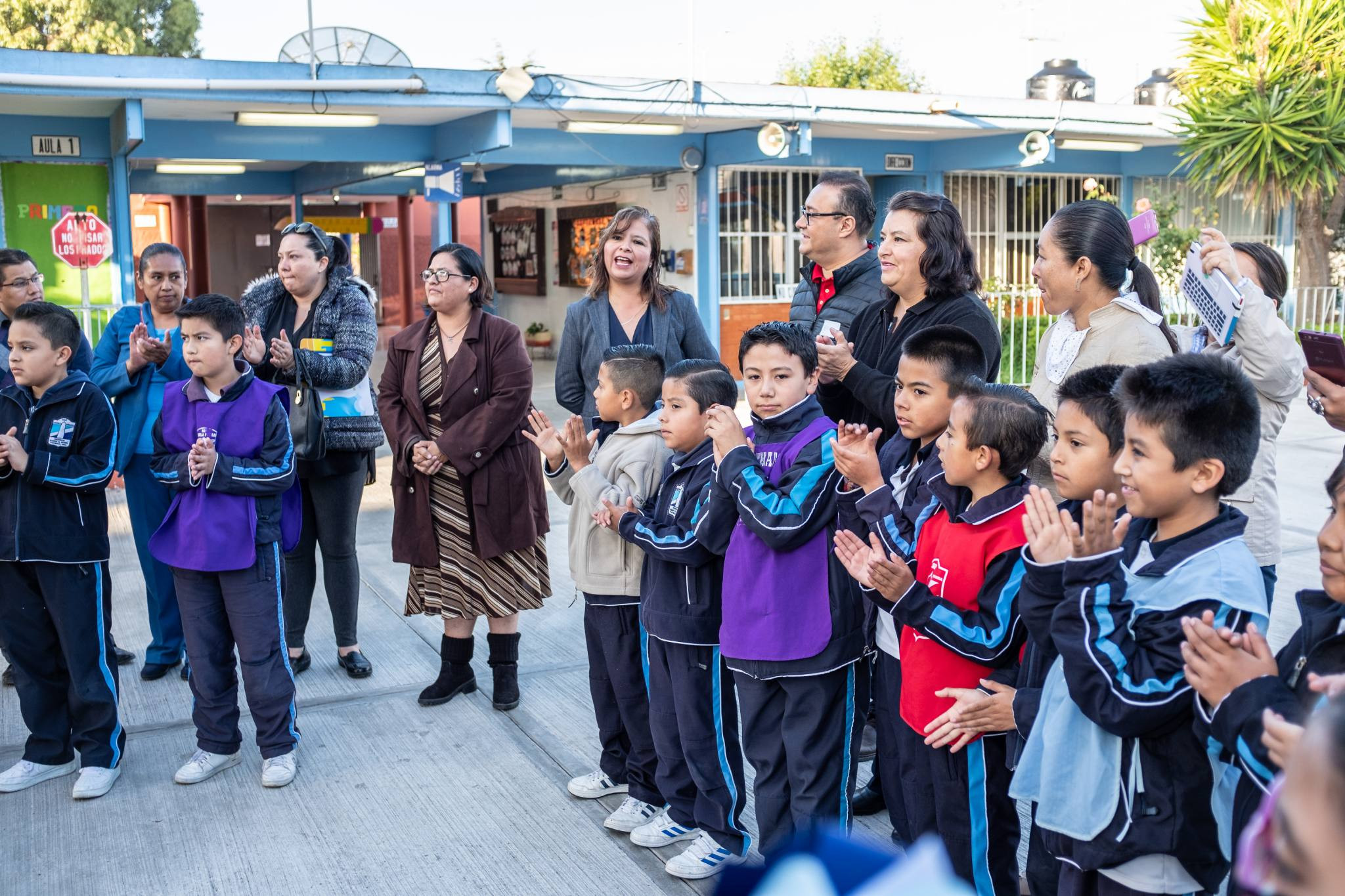What do we know about digital citizenship in Mexico?
Findings from a diagnostic review for the Secretary of Public Education
For media inquiries, contact:
hello@educationfutures.com
For media inquiries, contact:
hello@educationfutures.com

 Education Futures founder John Moravec lead a diagnostic review the Secretary of Public Education’s digital citizenship program in Mexico, bringing together voices of students, teachers, and parents. The research was performed in collaboration with Sofia Doccetti at the Centro de Estudios Fundación Ceibal (Uruguay) with a focus on:
Education Futures founder John Moravec lead a diagnostic review the Secretary of Public Education’s digital citizenship program in Mexico, bringing together voices of students, teachers, and parents. The research was performed in collaboration with Sofia Doccetti at the Centro de Estudios Fundación Ceibal (Uruguay) with a focus on:
The final report from the study (in Spanish) is available for download at: https://educationfutures.com/report/ciudadania-digital-en-mexico
As a diagnostic, the study is intended to inform the next government future directions for educating digital citizens. In June, 2018, during the first phase of the project, 45,359 students, teachers, and parents were surveyed on perceptions of expertise, security, and self-regulation of the use of digital tools. Findings from the survey were used to inform World Café-like conversations in the second phase, which gathered qualitative data from six schools in two states the following September.
Says Moravec:
“In our field work, we dove in deeper with focused conversations on what works and what is needed in digital citizenship education. By bringing students, teachers, and parents together on an even playing field, we were able to look into policy directions that would benefit all stakeholders in Mexico’s public education system.”

The survey portion of the study explored perceptions among various school actors and stakeholders regarding digital citizenship, explored the role of digital citizenship within and beyond the classroom, and gained insight into the digital citizenship practices and responsibilities by students. An interesting finding is that students, teachers, and parents/tutors overwhelmingly identified the home as a place where they access the Internet. 87.9% of students accessed the Internet at home while only 37.6% reported using it at school. As a consequence, this should alert educational policy leaders that, in addition to building out network capacity to schools, attention should also be given to support Internet access at home, where it is used most.
The self-perception of digital skills expertise is similar across students, teachers, and parents/tutors. Students, however, rate their teachers’ expertise as being higher than the teachers rate themselves; and, similarly, teachers rate their students’ expertise lower than the students rate themselves. This suggests to us a gap in understanding of what construes digital expertise, differing standards among the two groups of what construes digital expertise, or a belief that “teachers know everything and students do not yet know everything they need.”
While the majority of students, reported each of the potentially dangerous or risky activities we measured as somewhat to very dangerous, teachers and parents/tutors expressed much stronger perceptions of the dangers of online activities than students. Differing orientations between parents and students toward online risks suggest that parents are more vigilant for the safety of their children, children have not developed an awareness of the risks faced online, or children are more confident in navigating an online environment where these risks are present – or any combination of these factors, not to exclude others.

As for the public policy strategies we measured, respondents reported they want more than having information available on how to improve the use of the Internet for children. Parents/tutors and teachers both identified orienting toward parents/families as the greatest strategy. Teachers further identified courses/workshops and spaces for receiving help as being desired. This suggests that the government can take a much more active role in connecting with parents and teachers at a much more personal level.
These insights were explored in further detail in the World Café portion of the study, which generated the following recommendations:
What are the most relevant needs of students, teachers, and parents to promote safe and responsible online practices in schools?
What strategies can be promoted to involve students, parents, and teachers better?
What are the challenges and solutions to promote digital citizenship in the community?
Participants emphasized that there is a real need for investment in digital infrastructure to allow access to platforms and applications in schools. The data further show that there is a problem based on the system itself, which not only impacts the development of infrastructure but also impacts the socioeconomic context in which the use of digital technologies actually occurs. The fundamental lack of infrastructure probably does not have a positive impact on the development of digital citizens.
Click here to download the full report (in Spanish). An archive of data for this study is available from Education Futures at https://educationfutures.com/report/ciudadania-digital-en-mexico.

Education Futures LLC
+1 612-234-1231
hello@educationfutures.com
Subscribe to our newsletter
Follow us on: LinkedIn | Facebook